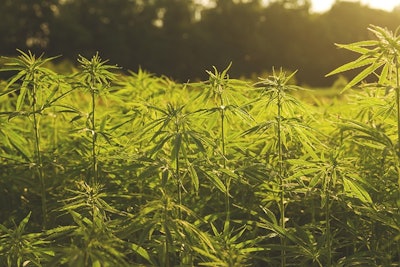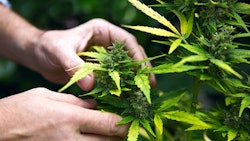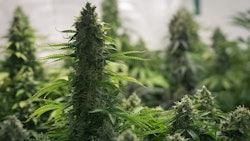
Editor's note: This story was originally published Dec. 11, and updated Dec. 12 with passage of the Farm Bill in the U.S. House of Representatives.
After months of debate and preparation, the final 2018 Farm Bill landed on the Congressional floor this week. On Dec. 11, the U.S. Senate approved the $867-billion agriculture law with an 87-13 vote. On Dec. 12, the U.S. House approved the bill with a 369-47 vote.
Now, the bill will be sent to the desk of President Trump, who is expected to sign it into law.
Included in the sprawling legislation is, of course, language that will legalize hemp cultivation and production in the U.S.
“At a time when farm income is down and growers are struggling, industrial hemp is a bright spot of agriculture’s future,” Senate Majority Leader Mitch McConnell, who shepherded the hemp measure into the bill, tweeted shortly before the Senate vote. “My provision in the Farm Bill will not only legalize domestic hemp, but it will also allow state departments of agriculture to be responsible for its oversight.”
In short, the Farm Bill would take hemp off the federal controlled substances list. Farmers will be allowed to pursue federal hemp cultivation permits, and states may decide to regulate the industry within their own borders as they wish.
Presently, 40 states oversee hemp cultivation “pilot programs” for industrial and commercial purposes. Because hemp remained a Schedule-I substance, though, the plant and its chemical constituents were regulated strictly. Hemp-derived CBD products have been treated separate from cannabis products, in the eyes of state regulators; now, whether through the U.S. FDA or state departments of agriculture, oversight of hemp-derived CBD will become clearer.
From a consumer-driven standpoint, the hemp-derived CBD market is expected to hit $22 billion by 2022, according to Brightfield Group. Absent the Farm Bill, that wave of investment and production would be impossible.
“This could be big,” McConnell told Lexington CBS affiliate WKYT. “I don’t want to overstate this. We all know how important tobacco was to Kentucky a few years ago, but there’s excitement about hemp.”
We'll be following industry reactions to the news and watching for Trump's signature. Already, hemp advocates and stakeholders are celebrating a major federal win, one that could herald even more dramatic swings toward cannabis reform.
"This is a pivotal and long-overdue moment for hemp in America," Shawn Hauser, chair of the Hemp and Cannabinoids Practice Group at Vicente Sederberg, said. "Following decades of prohibition under outdated drug laws, hemp will finally be treated like other crops and legal for U.S. farmers to grow. This historic legislation holds a lot of promise for our economy, the environment, and future generations.
"This will be a game-changer."
























